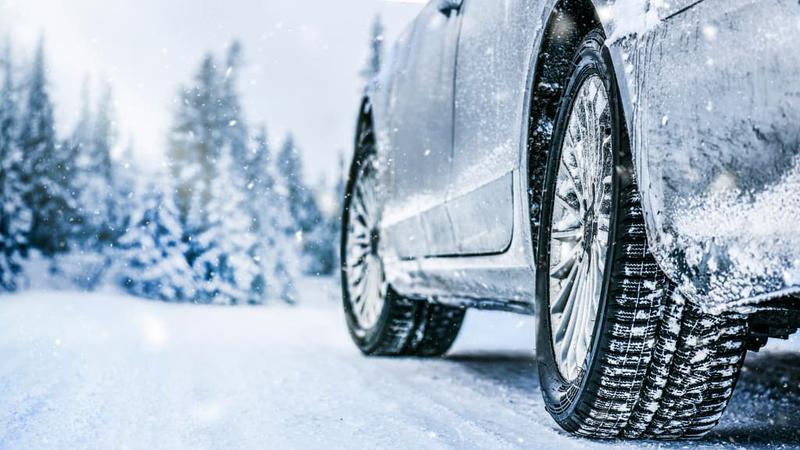In most areas of Canada, the winter season can significantly affect driving conditions, leaving you more prone to accidents. During the winter, even more so than other times of the year, it's important to focus on defensive driving to protect yourself and keep your family safe and sound. Driving safely also helps keep your insurance rates down, while minimizing wear and tear on your vehicle.
A big part of staying safe in the winter is making sure that your car is adequately prepared to handle whatever driving conditions you may face. Here are some steps you can take to prepare your vehicle and give yourself the best chance of staying safe over the winter months.
1. Make sure you have the right oil for your car. Check your owner's manual for the right oil for your specific vehicle, but in general oil like 5W30 works better in cold weather conditions than thicker 10W30 or 10W40. The thinner the oil, the more easily it circulates to lubricate your engine in colder temperatures.
2. Make sure your battery is in good condition. The last thing you need is to be stuck in the middle of nowhere and not be able to start your car. Make sure your battery's connections are free of corrosion and if your battery is more than 3 years old, consider having a repair shop test its ability to hold a charge.
3. Check your tire pressure. Due to the colder air, your tire pressure tends to drop a little bit in the winter. Keeping your tires at the manufacturer's recommended pressure makes your car easier to handle, making you safer on the roads and will even save you money by improving fuel economy!
4. Make sure your windshield wipers are in good condition. Faulty windshield wipers can significantly impair your ability to see in wet weather conditions. If your wipers are bent, twisted or simply don't clear your windshield adequately, then replace them.
5. Consider snow tires. If your area usually gets a significant amount of snow, it may be worth getting snow tires for your car during the winter months. Snow tires have deeper grooves that provide significantly more traction than all season tires, making them capable of stopping your car as much as 40% faster than all season tires. In addition, snow tires are made of a different type of rubber which allows them to maintain their flexibility even in very cold conditions. You'll feel safer and more confident in your ability to adequately control your car, no matter what happens on the roads!
6. Make sure your antifreeze mixture is correct. Your coolant should be a 50-50 combination of antifreeze and water. If you're unsure, you can buy an inexpensive antifreeze tester at most auto part stores. Having less than 50% antifreeze can leave your engine vulnerable to freezing up.
7. Make sure you keep an emergency kit in your car at all times. A well stocked emergency kit can be a lifesaver if you find yourself stranded on a highway in the middle of nowhere. A proper winter emergency kit for your vehicle includes:
- At least one warm blanket.
- Extra warm clothes, including boots, gloves and hats.
- Drinking water and food. Chocolate bars and candy are good choices due to their high sugar content.
- A flashlight.
- A shovel for digging you out of deep snow.
- Jumper cables.
- A flare.
- Extra windshield wipers.
- A first aid kit.
- A bag of sand or salt to give you extra traction if you get stuck.
- Windshield washer fluid.
8. Keep your gas tank as full as possible. Not only does this prevent you from running out of gas and being stranded, it also lowers the chance that your gas lines will freeze up due to water vapours and condensation in very cold weather.
9. Take your car in for a tune up prior to the first snow fall. Keeping your car well maintained is a good idea at any time, but it's especially important during the winter when driving conditions are poor and you may be taking lengthy trips for the holidays. Keeping your car in peak condition lowers your chances of getting stranded and gives you the peace of mind to know you're prepared.
10. Have your brakes checked. If it's been more than six months since your last brake check, have them checked again before the winter driving season. With the slippery road conditions that winter brings, being able to stop quickly is even more important than usual.
Incorporating these seasonal checks can help keep your car running smoothly and safely throughout the winter season, giving you one less thing to worry about when you're out on the road, and safer driving will keep you safe, and keep your car insurance premiums low.
